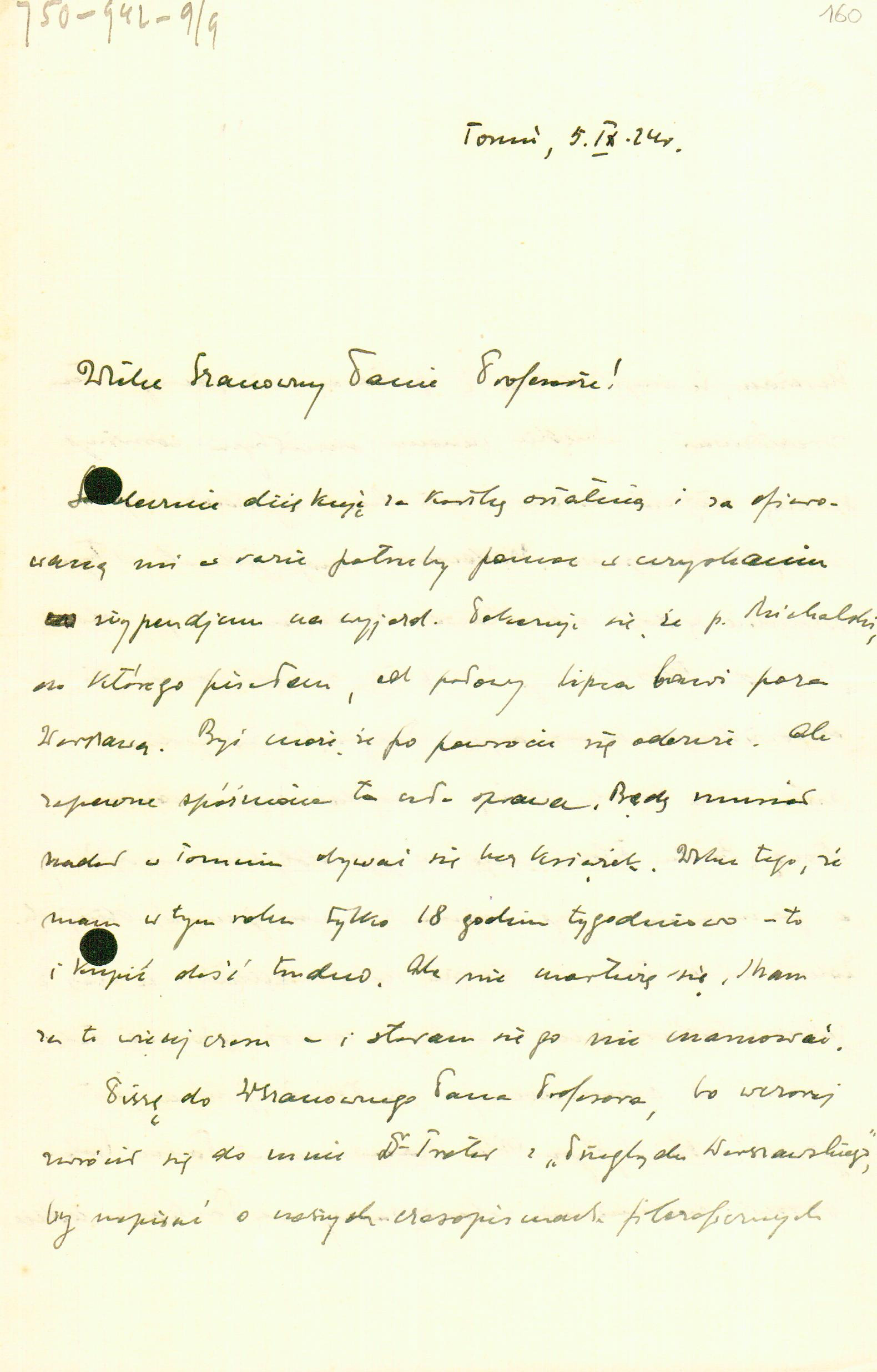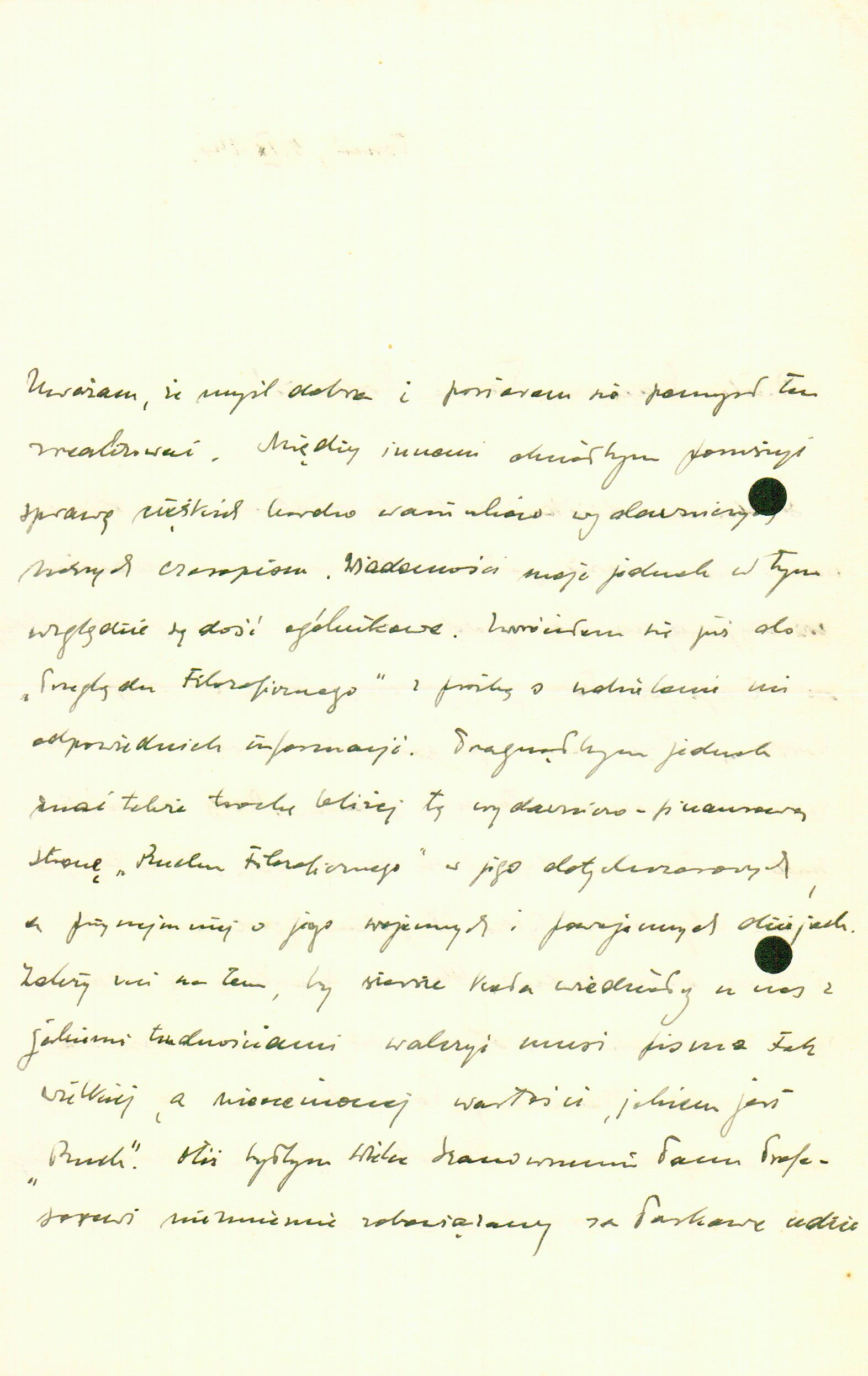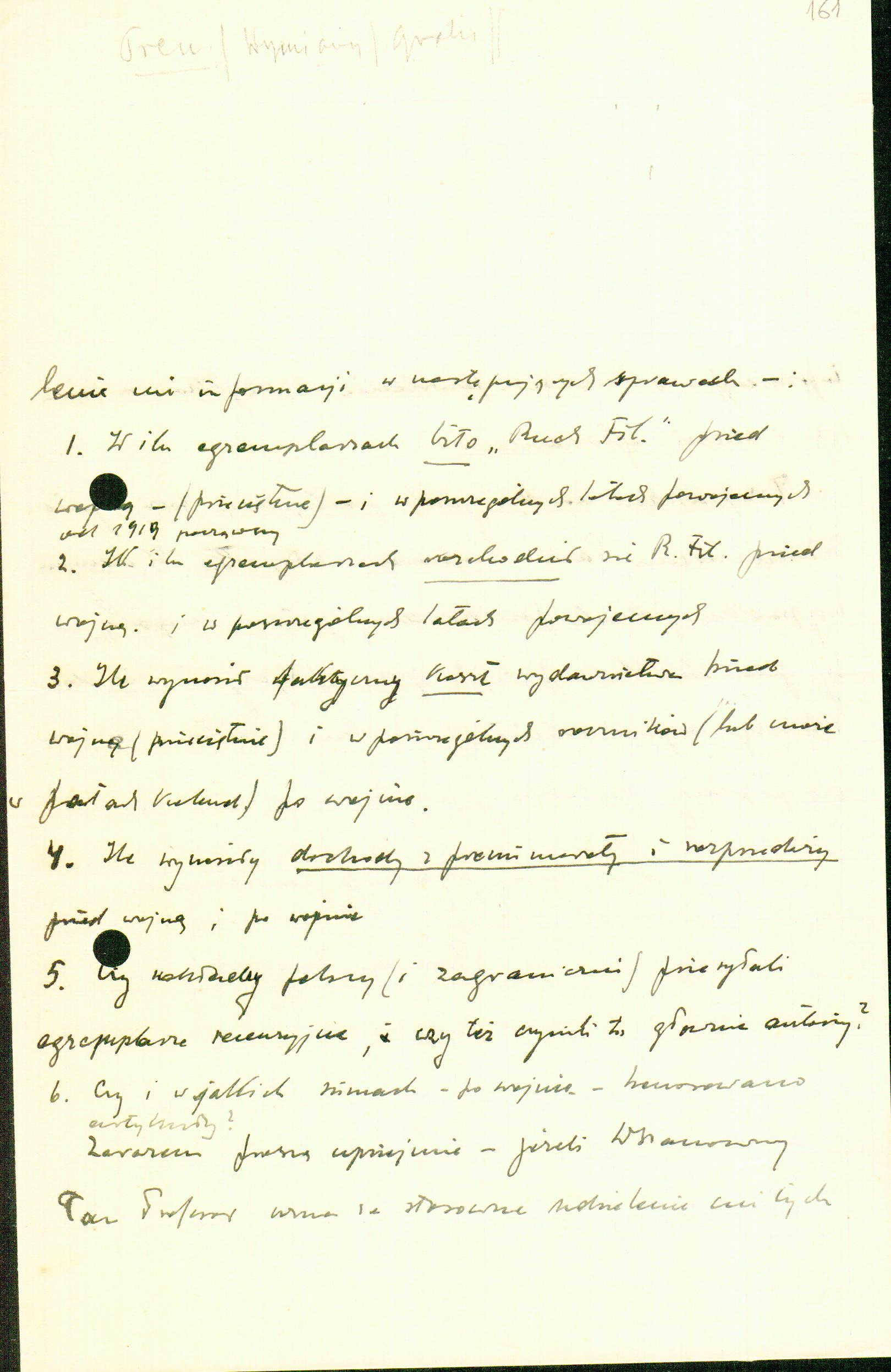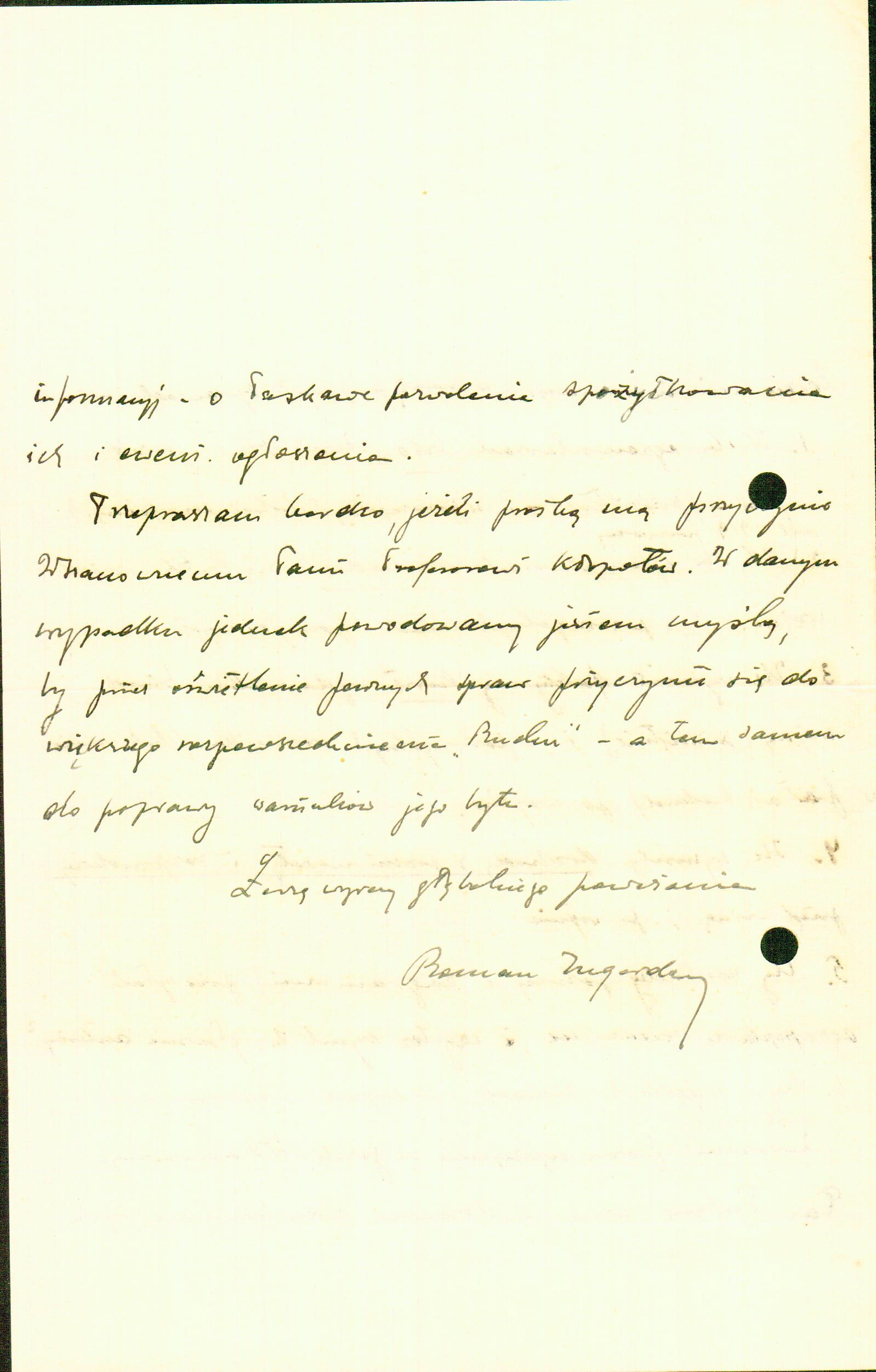



Letter to Kazimierz Twardowski written 05.09.1924
Toruń, 5/9/24
Most Honourable Professor!
Thank you for your latest card and for your offer to help me, in case of need, to obtain a travel scholarship. It turns out that Mr Michalski, to whom I wrote, has been occupied and out of Warsaw since mid-July. Perhaps he’ll respond once he returns. But probably the whole thing has been left too late. I’ll have to stay in Toruń without any books. Since I have only 18 hours a week this year, buying them is also fairly difficult. But I’m not worried. As a result, I have more time – and I’m trying not to waste it.
I’m writing to you because yesterday Dr Treter [O1] from Warsaw Review asked me to write about our Polish philosophical journals. I think it’s a good idea, and I’m going to try to implement it. Among other things, I’d like to raise the issue of the extremely onerous publishing conditions affecting our journals, but my information in this respect is rather vague. I’ve already turned to Philosophical Review with a request to provide me with relevant information. However, I’d like to become a bit more intimately acquainted with the publishing and financial side of Philosophical Movement in terms of its history to date, or at least its war and post-war history. It’s particularly important to me for wider circles here in Poland to know about the problems with which such a great but underrated journal as Movement has to struggle. Thus, I’d be extremely obliged to you for graciously sharing information with me concerning the following matters:
1. How many copies of Phil. Movement were printed before the war (on average) and in particular post-war years starting in 1919?
2. What was the circulation of Phil. M. before the war and in particular post-war years?
3. What was the actual cost of publishing before the war (on average) and in particular publishing years (or maybe in calendar years) after the war?
4. What were the revenues from subscriptions and retail sales before and after the war?
5. Was it the Polish (and foreign) publishers who sent review copies, or was it chiefly the authors who did this?
6. Have authors been remunerated – post-war – and, if so, in what amounts?
At the same time I politely ask ‒ provided you consider it appropriate to provide me with this data – for gracious permission for their use and possible publication.
I apologise if my request causes you any trouble. In this case, however, I’m motivated by the thought that by highlighting certain matters I might contribute to the wider dissemination of Movement – and at the same time to improve the conditions governing its existence.
I enclose expressions of profound esteem
Roman Ingarden
[O1]Mieczysław Treter (1883‒1943)
